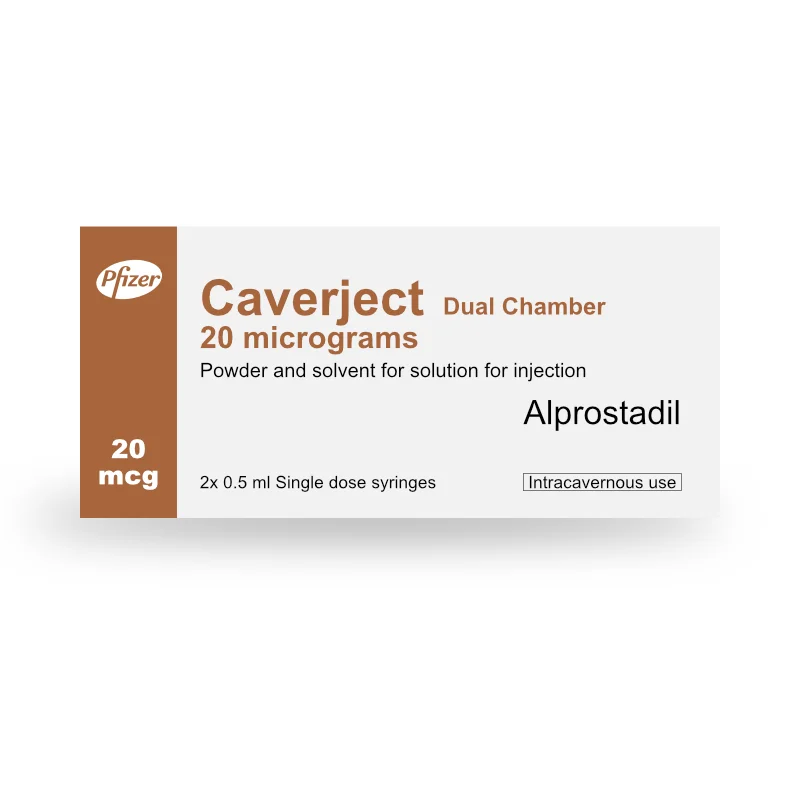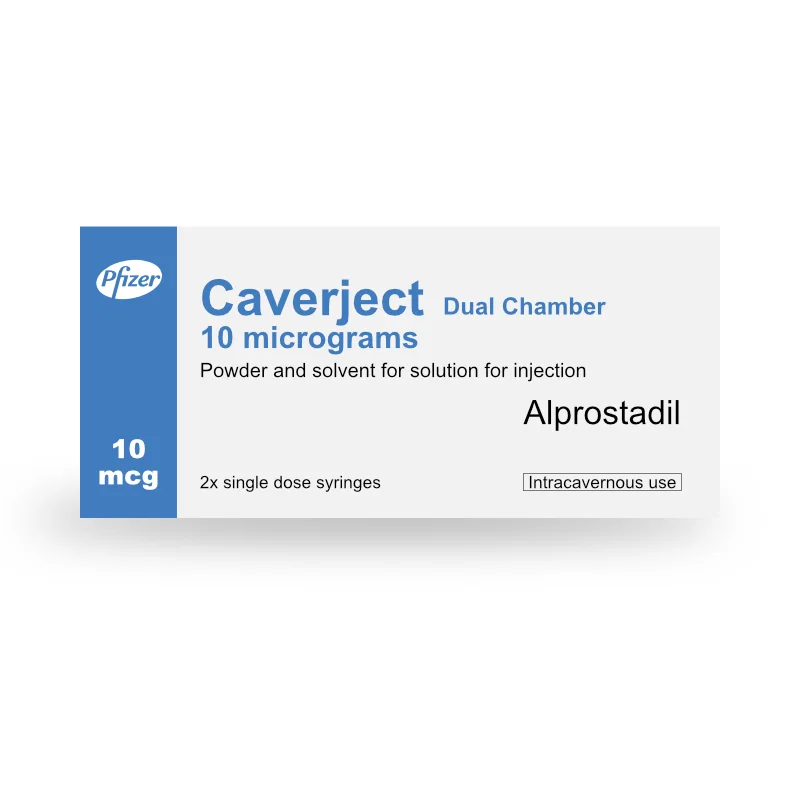Erectile dysfunction
Prescription-strength treatments to overcome erectile dysfunction and get your mojo back
Try the UK’s first triple combination erectile dysfunction soluble cheek patch that works within 30 minutes and lasts for 36 hours.
Tablets, creams, gels, injections and compounded solutions, the largest range of treatments for erectile dysfunction in the UK.
Important
Compounded treatments, eg, LDN, ED patches, Melatonin, or for hair loss, are visible after completing a consultation. If you have previously purchased, you can reorder from your account.
Find the right ED treatment for you
View All ProductsWhat you should know about erectile dysfunction treatments
Erectile dysfunction (ED) is the inability to achieve or maintain an erection sufficient for satisfactory sexual performance. It can affect men of all ages but is more common as men get older.
ED can be caused by a variety of factors, including physical conditions like heart disease, diabetes, or high blood pressure; psychological factors such as stress, anxiety, or depression; and lifestyle choices like smoking, excessive alcohol consumption, or lack of exercise.
ED can be treated with lifestyle changes, oral medications (such as sildenafil, tadalafil, or vardenafil), vacuum erection devices, injections, hormone therapy, or, in some cases, surgery. The best treatment depends on the underlying cause and individual patient needs.
A doctor typically diagnoses ED through a combination of medical history, physical examination, and possibly some tests. The doctor may ask about your symptoms, medical conditions, medications, and lifestyle habits to determine the underlying cause.
Oral medications like sildenafil (Viagra), tadalafil (Cialis), and vardenafil (Levitra) work by increasing blood flow to the penis, helping to achieve and maintain an erection. These medications are typically taken before sexual activity and are effective for many men with ED.
Common side effects of ED medications can include headaches, flushing, upset stomach, nasal congestion, back pain, and dizziness. Serious side effects are rare but can include vision or hearing loss, or an erection lasting more than four hours (priapism), which requires immediate medical attention.
Yes, lifestyle changes can significantly improve ED symptoms. Quitting smoking, reducing alcohol consumption, losing weight, exercising regularly, and managing stress can all help improve erectile function and overall health.
Yes, psychological factors such as stress, anxiety, depression, or relationship problems can contribute to or cause ED. In such cases, therapy, counseling, or lifestyle changes may be effective treatments.
Additional information
What is Erectile Dysfunction (ED), and what causes it?
Erectile dysfunction (ED), also known as impotence, is a condition where a man struggles to achieve or maintain an erection sufficient for sexual intercourse or in response to sexual stimulation. This common condition can affect men of all ages, though it becomes increasingly prevalent with age. Approximately 50% of men between the ages of 40 and 70 experience ED at some point in their lives.
An erection occurs when sexual arousal causes the brain to send signals to the nerves in the penis, increasing blood flow and causing it to enlarge and harden. If this process is disrupted—whether by physical, psychological, or medicinal factors—erectile dysfunction can occur.
Physical causes of ED
Physical issues are the most common causes of ED, as achieving an erection involves complex bodily processes. Common physical causes include:
- Vascular Conditions: Diabetes, high blood pressure, and cardiovascular disease can restrict blood flow to the penis.
- Hormonal Imbalances: Conditions like thyroid disorders, hypogonadism (low testosterone), and Cushing’s syndrome can disrupt normal hormone levels.
- Neurological Disorders: Diseases such as multiple sclerosis and Parkinson’s disease can interfere with the nerve signals required for an erection.
- Anatomical Issues: Conditions like Peyronie’s disease, which affects penile tissue, can result in ED.
Psychological causes of ED
Mental and emotional health can also significantly impact erectile function. Psychological causes of ED include:
- Stress and Anxiety: High stress or anxiety levels can interfere with sexual arousal.
- Depression: Mental health disorders like depression can decrease sexual desire and performance.
- Relationship Issues: Emotional challenges or unresolved relationship issues can also contribute to ED.
Medicinal causes of ED
Certain medications can lead to erectile dysfunction. Common culprits include:
- Blood Pressure Medications: Beta blockers and diuretics can affect blood flow.
- Antidepressants and Corticosteroids: These can interfere with sexual function.
- Other Medications: Antihistamines, cytotoxic drugs, and recreational drugs can also contribute to ED.
Symptoms and diagnosis of erectile dysfunction
The main symptom of erectile dysfunction is the inability to achieve or maintain an erection during sexual activity. Identifying the underlying cause is crucial:
- If you can achieve an erection during masturbation but not with a partner, the cause may be psychological.
- If you cannot achieve an erection at all, the issue is more likely to be physical or related to medication.
Reduced blood flow to the penis is the most common cause of ED, often due to narrowing of the blood vessels. This can be an early indicator of cardiovascular disease, so it’s important to consult a GP for a full health check if you experience symptoms.
Diagnosis usually involves a discussion with your doctor, who may ask about your sexual history, overall health, lifestyle, and current medications. Simple tests, such as blood pressure checks, blood glucose and lipid tests, or an ultrasound, may be necessary to rule out serious underlying conditions.
Additional treatments for erectile dysfunction
If medications are not suitable or effective, other treatment options include:
- Lifestyle changes: Improving diet, exercising, quitting smoking, and reducing alcohol intake can significantly help.
- Psychological support: Counseling or therapy can address psychological causes of ED, such as stress or anxiety.
- Vacuum Constriction Devices (VCDs): These devices use suction to draw blood into the penis, helping achieve an erection.
- Surgery: Penile implants or prosthetics may be considered in severe cases that do not respond to other treatments.
Preventing erectile dysfunction
ED can often be prevented or mitigated by maintaining a healthy lifestyle:
- Quit smoking: Smoking can damage blood vessels and restrict blood flow.
- Maintain a healthy weight: Obesity is a risk factor for cardiovascular disease, which can cause ED.
- Moderate alcohol intake: Excessive drinking can affect sexual function.
- Exercise regularly: Physical activity improves overall cardiovascular health.
- Manage stress: High stress levels can contribute to ED.
Common myths about erectile dysfunction
Several misconceptions about ED persist, leading to unnecessary stigma:
- Myth: ED only affects older men.
Fact: While more common with age, ED can occur at any age. - Myth: Taking ED medication guarantees an erection.
Fact: ED medications require sexual stimulation to work. - Myth: Needing ED medication means a lack of attraction to your partner.
Fact: ED can be caused by various factors unrelated to attraction.
Conclusion
Erectile dysfunction is a common condition with various causes and effective treatments. If you experience ED, it’s important to consult a healthcare professional to determine the underlying cause and explore treatment options. With the right approach, ED can be managed successfully, allowing you to regain confidence and enjoy a satisfying sex life.
BSc Pharmacy, Independent Prescriber, PgDip Endocrinology, MSc Endocrinology, PgDip Infectious Diseases
Superintendant Pharmacist, Independent Prescriber
Compounding Pharmacist



